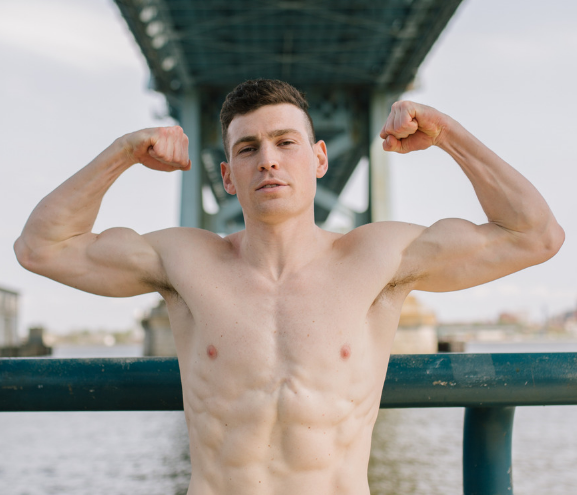Plant-Powered Bodybuilding: Debunking the Need for Animal Protein to Build Muscle
By Gavin McKay of Unite Fitness
Meatheads at the gym. That term shows just how deeply embedded the view of animal protein is with bodybuilding and fitness. Gaining muscle size is a much more nuanced process than just lifting and eating lots of meat. Over my 14 years in the fitness industry, and the 12 years prior training for rugby and football, the understanding of what it takes to add muscle size and strength has changed. In this blog I want to debunk the myths that have kept the bodybuilding and fitness community so meat and dairy biased in their quest for muscle, strength and performance, as well as, highlight the huge growth this generation is seeing in plant-powered athletes and trainers.
During the Naturally Fit Games in Austin, Texas in 2017 there were 1,000 entrants and a team of vegan athletes called Plant Built nearly swept the competition with 32 medals and 22 first places across an array of categories. Whether it is vegan, vegetarian, pescatarian or reducetarian more and more educated fitness professionals have pulled back on meat and dairy consumption or dropped it entirely for “cleaner” more environmentally friendly plant-based diets. That is an amazing turnaround when 10 years ago you would have been told that going vegan or vegetarian meant you’d end up frail.
On my own team of 20 trainers, there are now four vegans and four reducetarians and this has all changed over the last four years without my preaching. This is in large part due to the documentaries and articles exposing the increasing health and environmental risks of eating meat from factory farms. It is also empowered by new technology and food science that has created so many great plant-based healthy food and supplement options making it easier and more delicious to adopt a plant-based diet.
Myth #1 Extra Protein = Extra Muscle
This has to be the most misunderstood concept in bodybuilding. It is true that protein and amino acids are required to build muscle fibers. When working out you will need more protein in terms of grams than someone not exercising. However, that means more grams, not a greater percentage of your macronutrients should be protein. It’s a game of calculating your macronutrients and a nutritionist or some research on your part can use the formulas for determining the amount of protein needed each day, which I highly recommend.
The truth is Extra Calories & Carbs = Extra Size and both the exercise (or lack of it) and the type (and quality) of calories will dictate if that size is mostly muscle or mostly fat. We believe that reducing carbs helps to reduce fat and that eating a lot of carbs will add fat, but that carb (and extra calorie) signal affects muscle growth too.
It’s nearly impossible to lose fat and gain muscle size at the same time. The classic bodybuilding approach is to cycle the diet and workout program to first add, for example, 20 pounds of muscle and fat, and then months later reduce the added fat by cutting back five to ten pounds while losing a little muscle.
My top trainer Mark shown with his before and after shots (above) is a devout vegan. When he set his goal of adding muscle and hit the weights hard, he added 26 pounds in just two months! He did it all with calories, carbs and plant proteins.
Myth #2 Animal Proteins Are Better
The common misconception is that animal proteins are better in terms of recovery time and rebuilding muscle. What is true is that for a protein to build muscle it requires a certain “complete” structure of amino acids. Animal products are a “complete protein” innately because they were already synthesized by the animal in the creation of their muscles and milk. However, our bodies are just as capable of synthesizing these proteins from components found in various plants. Think about it. Cows, pigs, lambs, and chickens are the major animals sourced for meat protein and they all eat purely plant-based diets. In fact, they eat only one or two types of plants and yet they somehow turn it into protein to develop all of their muscle.
Recent studies have also proven the inaccuracy of the misconception that animal proteins are better for building muscle. A study published in 2017 in the American Journal of Clinical Nutrition found that dietary protein derived from plant sources is no different than that from meat sources.
For reducetarian athletes looking to add muscle, I recommend adding a shake to your daily intake made with plant protein like my favorite Wholefoods Sport version and always include extra carbs and calories from almond milk, bananas, and nut butters as you need more of all nutrients, not just protein.




